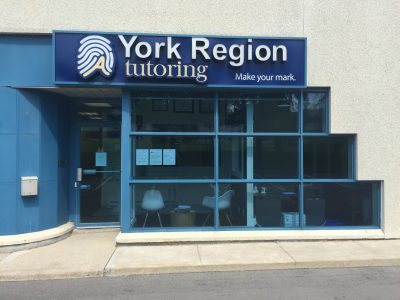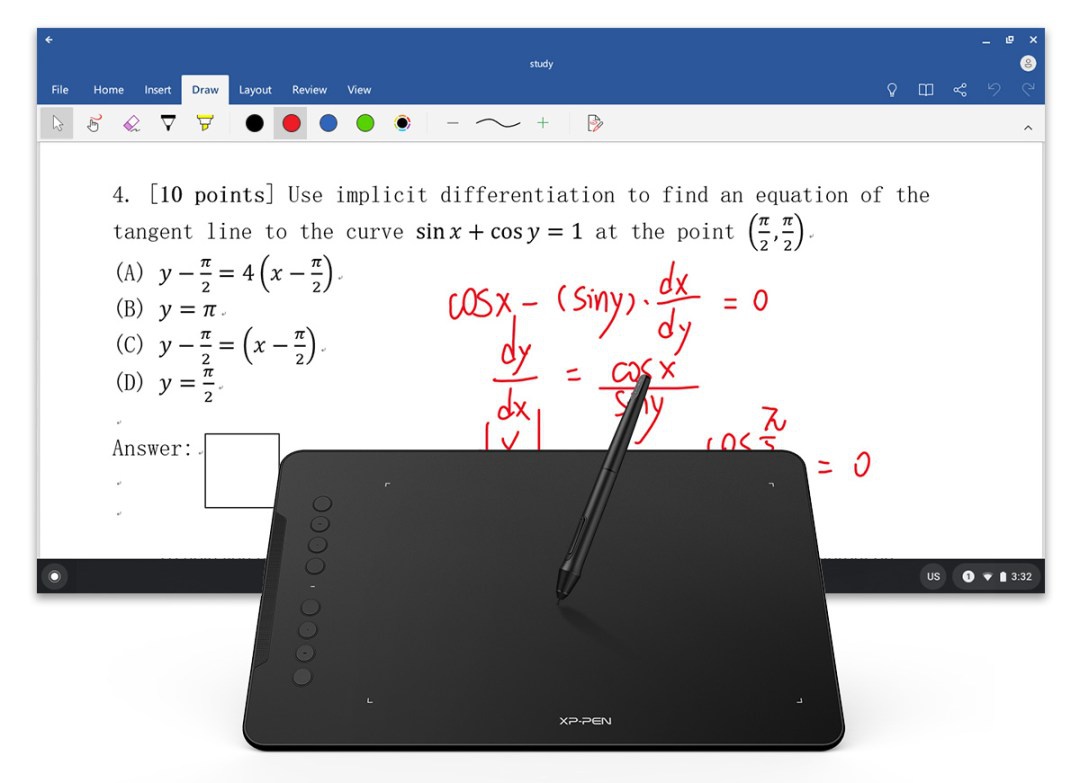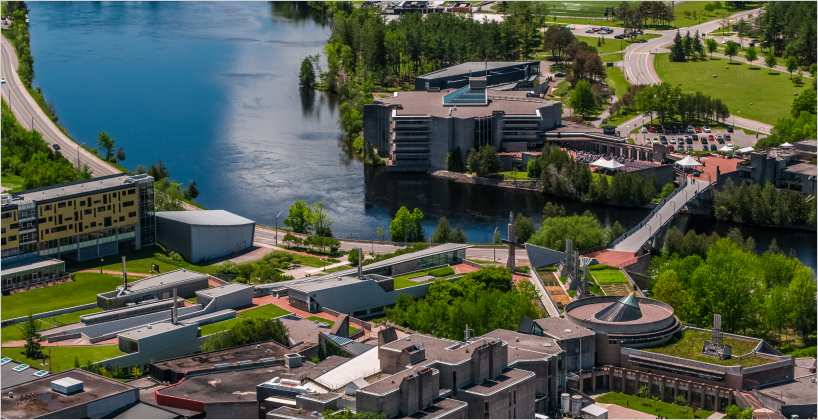The Toronto Metropolitan University School of Medicine (TMU School of Medicine) four-year MD curriculum is the 18th accredited medical school in Canada and will be located in Brampton, Ontario.
Admissions for TMU School of Medicine open October 9, 2024 for a September 2025 start date.

Table of contents
Location
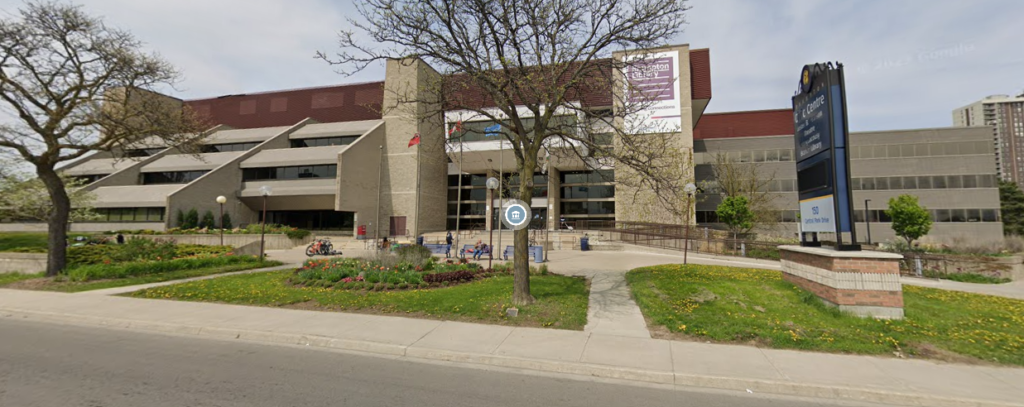
The TMU School of Medicine is housed in the former Bramalea Civic Centre at 150 Central Park Drive in Brampton, Ontario. The building is currently being transformed into a state-of-the-art medical school with flexible, collaborative classrooms, labs, and study spaces designed to support diverse teaching methods. A four-storey interconnected atrium at the main west entrance welcomes students, staff, and visitors into a vibrant, inclusive, and safe environment that fosters interaction and engagement.
The library provides quiet spaces for both individual and group study, offering additional learning opportunities beyond the classroom. Case-based learning labs, simulation labs, and digital anatomy labs further enhance TMU’s hands-on, experiential approach to medical education. The building’s design intentionally incorporates principles of equity, diversity, inclusion, decolonization, and reconciliation, and it is the first project at TMU to integrate the university’s Indigenous Design Guidelines, developed in consultation with Indigenous community members.
The TMU School of Medicine location was chosen for its proximity to Brampton Civic Hospital and Peel Memorial Centre for Integrated Health & Wellness, as well as its accessibility via public transit, GO Transit, and highway systems. The site is also close to a variety of services and amenities to support students’ well-being.
Tuition, Financial Aid, and Scholarships/Awards

The annual tuition for the MD Program for the 2025-2026 academic year is $25,604 CAD, with additional TMU Mandatory Ancillary Fees. Tuition and fees are subject to change each year throughout the four-year MD Program and will be updated on our website at the start of each admissions cycle. Registered students will also be notified of any changes.
Scholarships and awards will be available through the TMU Student Awards and Scholarships Office to assist medical students with financial need. These will primarily support students admitted through the Indigenous, Black, and Equity-Deserving admissions pathways, as well as those who demonstrate exceptional talent in healthcare innovation and leadership. Students will also receive guidance and support to apply for these scholarships and awards.
Further details on tuition, fees, financial aid (including the Ontario Student Assistance Program), and payment options will be communicated electronically to successful applicants.
The TMU School of Medicine Curriculum
Phases
The Toronto Metropolitan University School of Medicine’s MD curriculum will be delivered in a phased approach.
- Phase 1 establishes a strong foundation for clinical learning, where students will develop and apply knowledge, skills, and abilities in basic sciences as well as clinical, social, and health systems sciences.
- Phase 2 immerses students in hands-on clinical learning through a Longitudinal Integrated Clerkship, primarily focused on Family Medicine. Students will also complete clinical rotations in medical specialties across various healthcare settings.
- Phase 3 prepares students for residency by enhancing their skills through electives, postgraduate study preparation, and the completion of a self-directed learning block, either at TMU or internationally.

Year 1-4 At A Glance
Year 1 and Year 2
In Years 1 and 2, students will take the same courses, continuing the subjects from the previous year.
- MED 101 and MED 201 – Principles of Medicine
- MED 110 and 210 – Person Centered Care
- MED 120 and MED 220 – Health Systems Sciences
- MED 130 and MED 230 – Community & Global Health
- MED 140 and MED 240 – Indigenous Communities & Health
- MED 150 and MED 250 – Personal & Professional Development
Year 3
In Year 3, Principles and Medicine and Person Centered Care will be replaced by Clerkship.
- MED 360 – Clerkship
- MED 320 – Health Systems Sciences
- MED 330 – Community & Global Health
- MED 340 – Indigenous Communities & Health
- MED 350 – Personal & Professional Development
Year 4
In Year 4 Clerkship will be replaced by Transition to Residency with the other core subjects remaining the same as Year 1.
- MED 460 – Transition to Residency
- MED 420 – Health Systems Sciences
- MED 430 – Community & Global Health
- MED 440 – Indigenous Communities & Health
- MED 450 – Personal & Professional Development
TMU School of Medicine Residency Programs
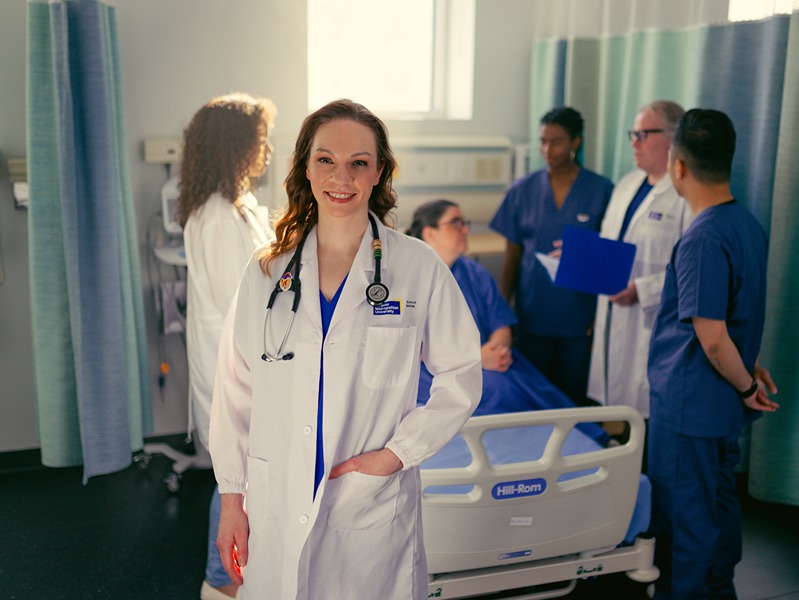
In July 2025, the TMU School of Medicine will welcome its first cohort of 105 residents. The school has partnered with several leading health systems and organizations in the Greater Toronto Area to provide a wide range of residency training opportunities through its clinical affiliates. Additional partnerships are being developed with primary care practices in Brampton and surrounding areas.
Similar to the MD program, TMU’s residency programs will be grounded in community-focused care, cultural respect, and safety, with an emphasis on equity, diversity, inclusion, decolonization, and health equity.
Residency Program
Aligned with its vision of preparing future primary care physicians to deliver compassionate care to diverse communities, the TMU School of Medicine is committed to offering residency programs in Family Medicine and generalist specialties.
In preparation for the first cohort, the school is in the process of seeking accreditation for 16 residency programs: 9 through the Royal College of Physicians and Surgeons of Canada (RCPSC) and 7 through the College of Family Physicians of Canada (CFPC).
Family Medicine (CFPC)
- Family Medicine
- Family Medicine-Enhanced Skills programs, including:
Generalist Specialties (RCPSC)
- Anesthesia
- Emergency Medicine
- General Internal Medicine
- General Surgery
- Geriatrics
- Internal Medicine
- Pediatrics
- Psychiatry
- Surgical Foundations (runs alongside General Surgery)
After the TMU School of Medicine MD Program

Earning a Doctor of Medicine (MD) degree does not automatically grant a graduate the right to practice medicine in Canada. Graduates must complete additional steps to become licensed physicians.
Regulations for Licensure
To practice medicine in Canada, physicians must obtain a medical license. Details on the licensure process are available on the Medical Council of Canada website. Although specific requirements may vary by province, the general pathway includes the following:
- Earning the MD degree.
- Passing the Medical Council of Canada Qualifying Examination Part I (MCCQE1).
- Completing a recognized residency training program and obtaining specialty certification (e.g., through the Royal College of Physicians and Surgeons of Canada or the College of Family Physicians of Canada).
- Meeting provincial requirements to receive a certificate of registration from the relevant Medical Regulatory Authority.
In Ontario, the regulatory authority is the College of Physicians and Surgeons of Ontario (CPSO). More information about obtaining a certificate of registration is available on the CPSO website.
Residency Training and CaRMS
To qualify for medical licensure and certification in Canada, all medical graduates must complete postgraduate residency training. This training leads to specialty certification through the Royal College of Physicians and Surgeons of Canada (RCPSC) or family medicine certification through the College of Family Physicians of Canada (CFPC).
Residency positions are assigned through the Canadian Resident Matching Service (CaRMS), an independent organization that facilitates the application and matching process between medical students/graduates and faculties of medicine across Canada. CaRMS runs the R-1 Main Residency Match for entry-level postgraduate training positions, as well as additional matches for Medicine Subspecialties and Enhanced Skills in Family Medicine.
To apply for residency, medical students/graduates must register for the appropriate CaRMS match, meet basic eligibility requirements, and fulfill the admission criteria set by individual programs.
TMU MD students will receive support, guidance, and career counseling as they prepare for the CaRMS R-1 Main Residency Match. They can apply to a variety of residency programs at TMU and across the country.


